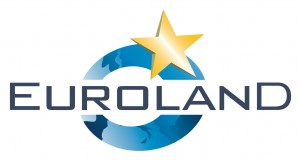So far 29 executives of Parmalat and its banks and auditors have been charged in what is certainly Europe’s largest financial scandal ever. Profits have been overstated, fictitious bank accounts with billions of euros were created and perhaps € 1bn of investors’ money was siphoned off for personal use by Calisto Tanzi (Parmalat’s founder) and his friends and family.
For many Europeans, corporate scandals were supposed to be American affairs. It was the American sense of greed that encouraged executives at Enron, Tyco and WorldCom to over-expand, misstate the financial results of the company and blur the line between company money and one’s own wallet.
Even when European corporate scandals came in the news, the misdeeds often related to the American activities of a European multinational, as with for example Ahold or Vivendi. These companies were sometimes stressing how much they have become American rather than European, so no wonder they are the ones who are scandalised, the argument went.
Parmalat changed all that. The fraudulent behaviour at Parmalat was so large, so widespread and went on for so long, that you may wonder why it has taken until now to be discovered. Time should tell whether the relative rarity of large corporate scandals in Europe compared to the United States is the result of better corporate governance in Europe or due to the absence of a vigorous prosecution. The fact that Italy has introduced a new law to improve the country’s financial markets regulation is a positive step, but also a signal that Parmalat is not an isolated case.
Parmalat also shows that family ownership of a quoted company is a double-edged sword. American research shows that companies with a dominant family ownership perform better than average. However, it is among family controlled companies that the temptation is greatest to use company money for personal goals. Parmalat’s chief used to fly his whole family over on a private jet to visit acquisition targets. That is why investors are now wary of complicated holding structures designed to give founding families an influence that is disproportionate to the stake they have left in the company. These opaque structures are still relatively common in Europe and are only now beginning to be simplified. (Still, even professional CEOs like Tyco’s Kozlowski can fall for the temptation to use the company chequebook, as he did when he flew friends and associates over to Sardinia for his wife’s extravagant birthday party.)
There are also distinctly European and American ways of dealing with the consequences of corporate malpractice. Typically, when investors in American companies have lost due to a corporate scandal or fraud, then the investors pay the bill. They are the ones who have been unlucky or unwise enough to make a bad investment. Hopefully other investments will turn out better. In Europe, the instinct of national governments is to jump in to try to ‘save’ the company, at the expense of taxpayers and the competitors of the demised company. Fortunately, the European Commission has demonstrated its value in monitoring and sanctioning illegal state aid. This action is critical to show to all investors that they can not get a free ride by investing in companies that engage in risky expansion or who don’t play by the rules.
Parmalat was another European company that relied on contacts with banks and government administrations to expand and to hide the truth. However, scandals like Parmalat and a vigilant European Commission are encouraging fund managers to look more at a company’s corporate governance than at its government contacts, before placing their money.


 LEAP2040 Toutes les informations et archives Europe2040
LEAP2040 Toutes les informations et archives Europe2040


